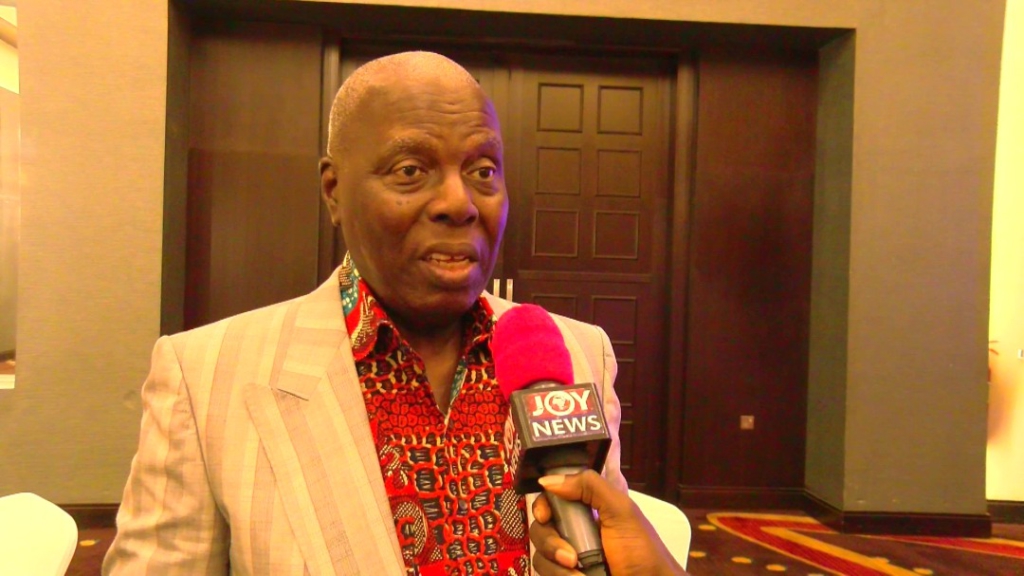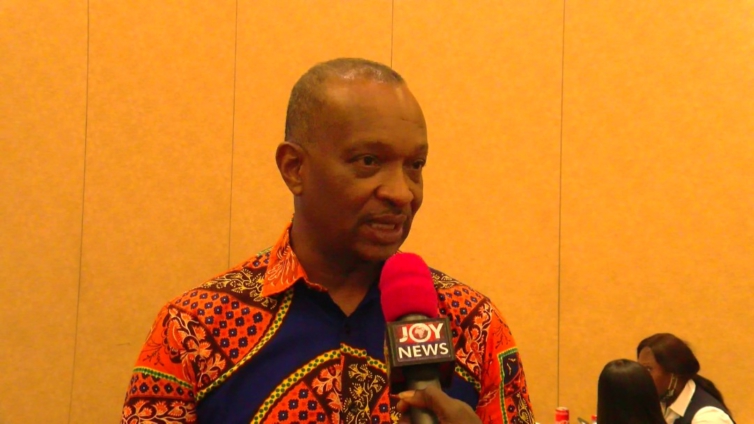A former CEO of Volta River Authority (VRA), Kwaku Awortwe, has underscored the important role that Science, Technology, Engineering and Mathematics (STEM) play in reducing Ghana’s unemployment rate.
According to him, the industry must find a way of reaching out to academia to help in the training of human resources for the job market with a focus on STEM, as it holds an important key in producing a tailor-made labour pool for the industry.
Speaking to JoyNews on the sidelines of the launch of the Worcester Polytechnic Institute’s Applied STEM Project he called for a collaboration between academia and industry to roll out effective STEM projects to help train more of Ghana’s workforce.
“The important thing is collaboration, and it’s also just the posture of academia, in particular, to reach out to industry to collaborate with them, and vice versa. Not a lot of institutions do that. In this particular case, we are here with an academic-based initiative.
"WPI has reached out with a project-based, purpose-driven STEM project; Applied Stem, and they need partners to get it done. If you don’t have that collaboration it won’t happen,” he said.
Elaborating further, Mr Awortwe, who was once the Chief Executive for Tullow Ghana Limited urged companies to understand that their workforce needs to be well trained to be able to deliver on their mandates.
“In the case of STEM, if you’re in the oil and gas industry, if you’re in the power industry, you need engineers; highly trained technicians, and so it is in industry’s interest to reach put to academia to help with scholarships, internships, and training. It’s going on, and I will say that collaboration needs to increase to make it fruitful”.
The Distinguished Statesman in Residence at Worcester Polytechnic Institute, and Ghana’s former Ambassador to the US, Dr Barfour Adjei-Barwuah, also added that industries and businesses in Ghana must make it a point to support the implementation of STEM projects to help train Ghana’s next generation of leaders.

“Business and industry in this country can shoulder a large proportion of this, especially on the applied side.
“The thing is if the government were to do it alone, in the final analysis, who gets the benefit by way of employment of people who have skills; who have been trained and all that? And the government should learn how to access business and industry for them to be able to do some of these things,” he told JoyNews.
Latest Stories
-
MTN Ghana champions women’s empowerment at National Women’s Summit 2025
3 hours -
Volta Council of State rep donates motorcycles to support journalists in the region
4 hours -
Cabinet approves construction of second gas processing plant
5 hours -
Whitray Junior Tennis Open 2025 begins in Accra
5 hours -
Judith Adjobah Blay confirmed as Ghana Gas Ag. MD; Robert Lartey elevated to Deputy MD
7 hours -
Man to be executed in US by firing squad
7 hours -
Several dead after UN helicopter shot at in South Sudan
7 hours -
Mahama designates Interior Minister to oversee National Security
7 hours -
Prosperity Vision Party launched to challenge Ghana’s political duopoly
8 hours -
Michael Essien is the greatest Ghanaian to ever play in the Premier League – Semenyo
8 hours -
Heal KATH Project: Patients readying to receive care at two upgraded wards
8 hours -
AGA rolls out its first All-Women Apprenticeship Programme in Obuasi
8 hours -
Accelerate action: Ghana champions women entrepreneurship in electric mobility on International Women’s Day
9 hours -
AIO, WAICA strike strategic partnership deal
9 hours -
ITF congratulates Ing. Frank Kofi Apeagyei on his election as IFATSEA President
9 hours

